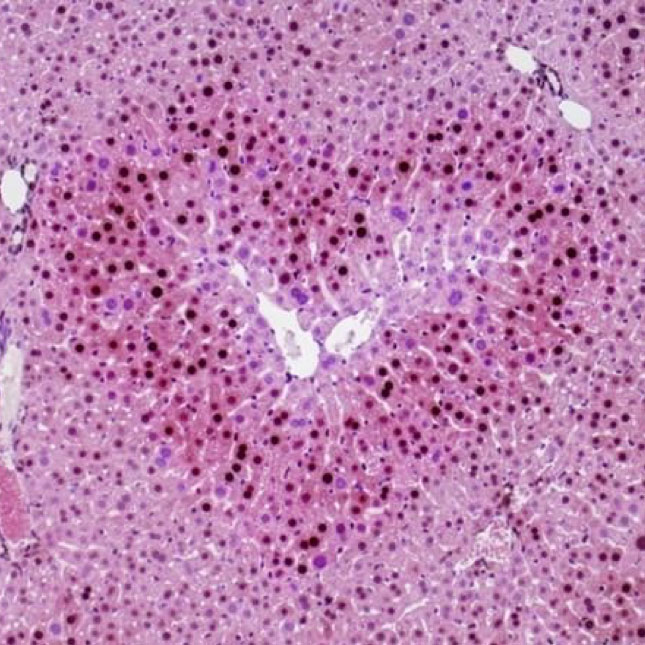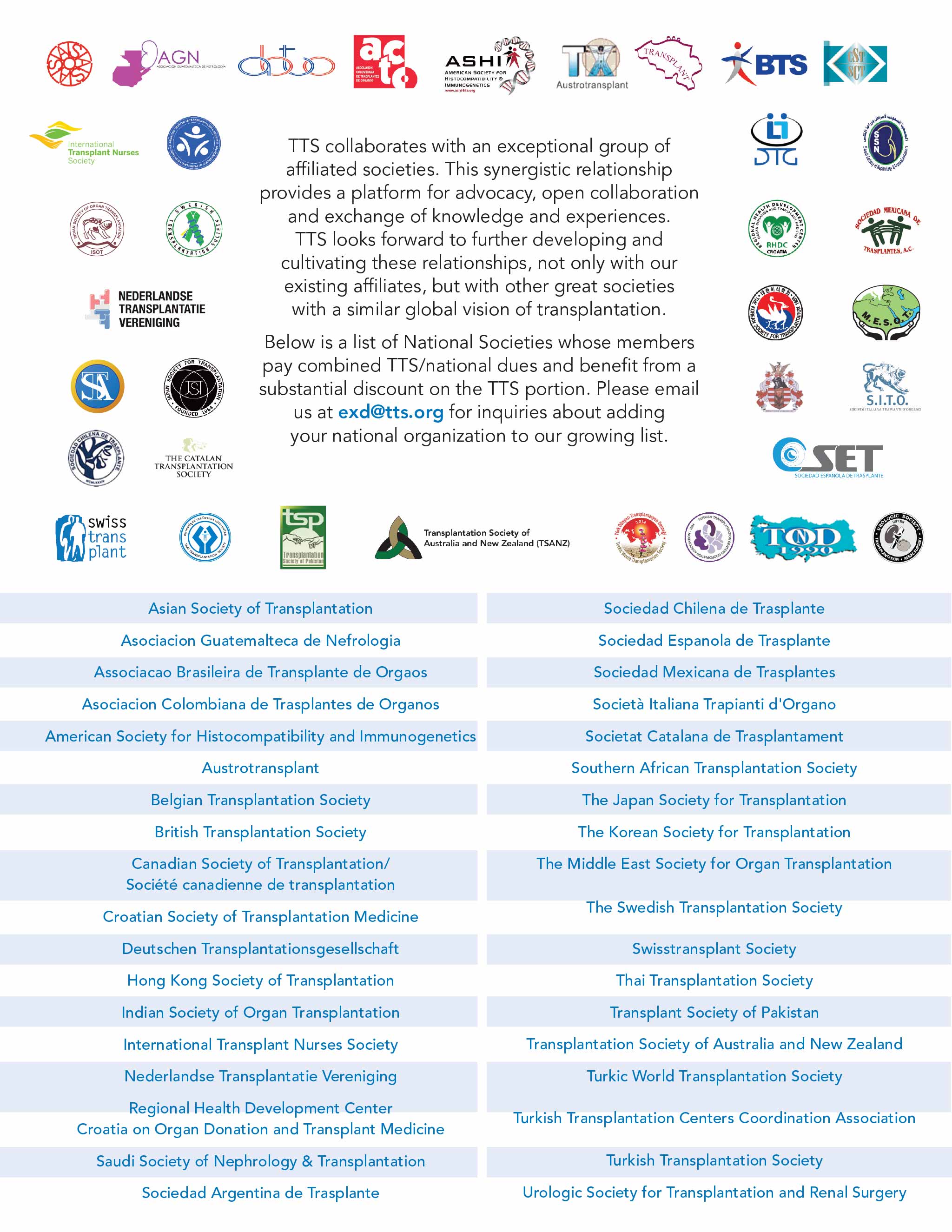Newsletter 2021 Volume 18 - Issue 1
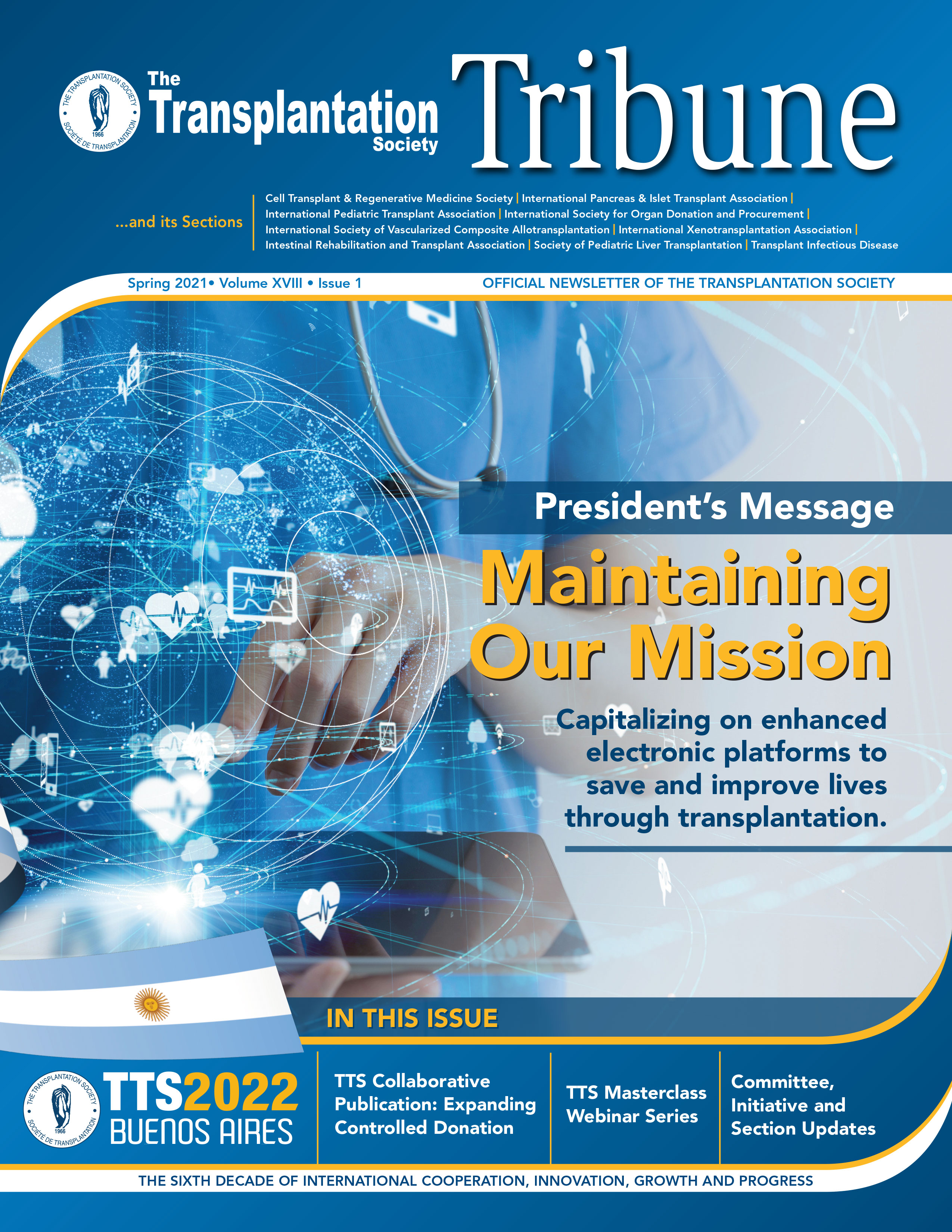
Maintaining Our Mission
Capitalizing on enhanced electronic platforms to save and improve lives through transplantation.

The year 2020 was a difficult one for all of us, but in particular for those who were on the front lines facing the pandemic. We are eternally grateful to the many who have been fighting this problem.
As we turn to 2021, I am hopeful that the worst of this pandemic is behind us and that we can maintain our mission of saving and improving lives through transplantation. We have many activities for 2021 that will capitalize on the new and/or enhanced electronic platforms that were born out of necessity in 2020. Together with our Sections, we will continue to bring increased online content through webinars covering:
- The Donor/Recipient Pair (multipart series with the International Society of Nephrology (ISN))
- Hospital Discharge Following Transplantation (with the Society of Pediatric Liver Transplantation (SPLIT))
- The Impact of the COVID-19 Pandemic on Patient and Family Wellness
(from the International Pediatric Transplant Association (IPTA) – Allied Health and Nursing Professionals) - COVID-19 Vaccines for Transplant Recipients (with the World Transplant Games Federation (WTGF)
- A multi-part webinar-based Pancreas and Islet Transplantation Curriculum
(from the International Pancreas and Islet Transplantation Association (IPITA) - Anaesthesia and Critical Care
- Updates in Patient Care (series with the Intestinal Rehabilitation and Transplant Association – Allied Health Providers (IRTA AHP))
TTS Champions
One of the areas that I wish to focus on during my presidency is ensuring that there is access to transplantation throughout the world without regard to gender, sex, race, ethnicity, or socio-economic circumstances of the individual or of the region. To help us achieve this, as I mentioned in the last issue of the Tribune, we have created a new role in TTS, that of TTS Champions. We have been working diligently with our Councilors and Ambassadors in all of our regions to implement this concept.
The role of the TTS Champions is to identify barriers to access to transplantation and to interact with the TTS Councilors and Ambassadors of their region aiming at positive and timely changes. The issues raised by the TTS Champions will be discussed with the TTS Executive Committee and the TTS Council with the goal of finding pragmatic solutions.
I expect that the TTS Champions will liaise with local governments with the help of the TTS Executive and the TTS Councillors of that region, to implement ways to reduce barriers and increase access to transplantation. The ultimate goal is to achieve self-sufficiency in solid organ transplantation throughout the world.
We are currently in the process of selecting the TTS Champions in all regions. We have also sought the collaboration of national and regional societies to help us achieve our objectives, as this is not just a TTS goal but one for all professionals in the field of transplantation.
TTS 2022
We are hard at work preparing for the 29th International Congress of The Transplantation Society (TTS 2022). Having had to transition from an in-person conference to a virtual congress in 2020, we are glad to welcome everyone in Buenos Aires in September 2022. This congress will be in collaboration with our colleagues from the Argentinian Society of Transplantation (SAT) and the Latin American and Caribbean Transplant Society (STALyC).
With everyone so eager to meet in person once again, we expect over 3500 transplant experts and key opinion leaders. TTS 2022 will offer a multidimensional program based on the main themes in transplantation medicine: cutting-edge science, clinical advances, latest controversies in ethics and public policy, best practices in development of transplant programs, organ donation, and procurement.
Please mark your calendars: September 10 to 14, 2022 at the CEC Buenos Aires Convention and Exhibition Center in Buenos Aires, Argentina
TTS Masterclass Series
We are excited to introduce the TTS Masterclass Series this year.
The challenge of advancing knowledge when restrictions on in-person meetings continue has motivated us to develop a new event format designed to meet the unique characteristics of digital education and the needs of our global members.
The TTS Masterclass Series will focus on 5 timely topics – transplant immunology, infection, immunosuppression, organ donation, and outcome reporting – with each topic covering specific regional issues broken into seven regions: Africa, Asia, Europe, Latin America, Middle East, North America, and Oceania. This series will be available live at a convenient time for each region, but will also be available as recorded lectures.
I am very excited about this new educational activity at TTS and I hope you will take advantage of it.
New Affiliated Society
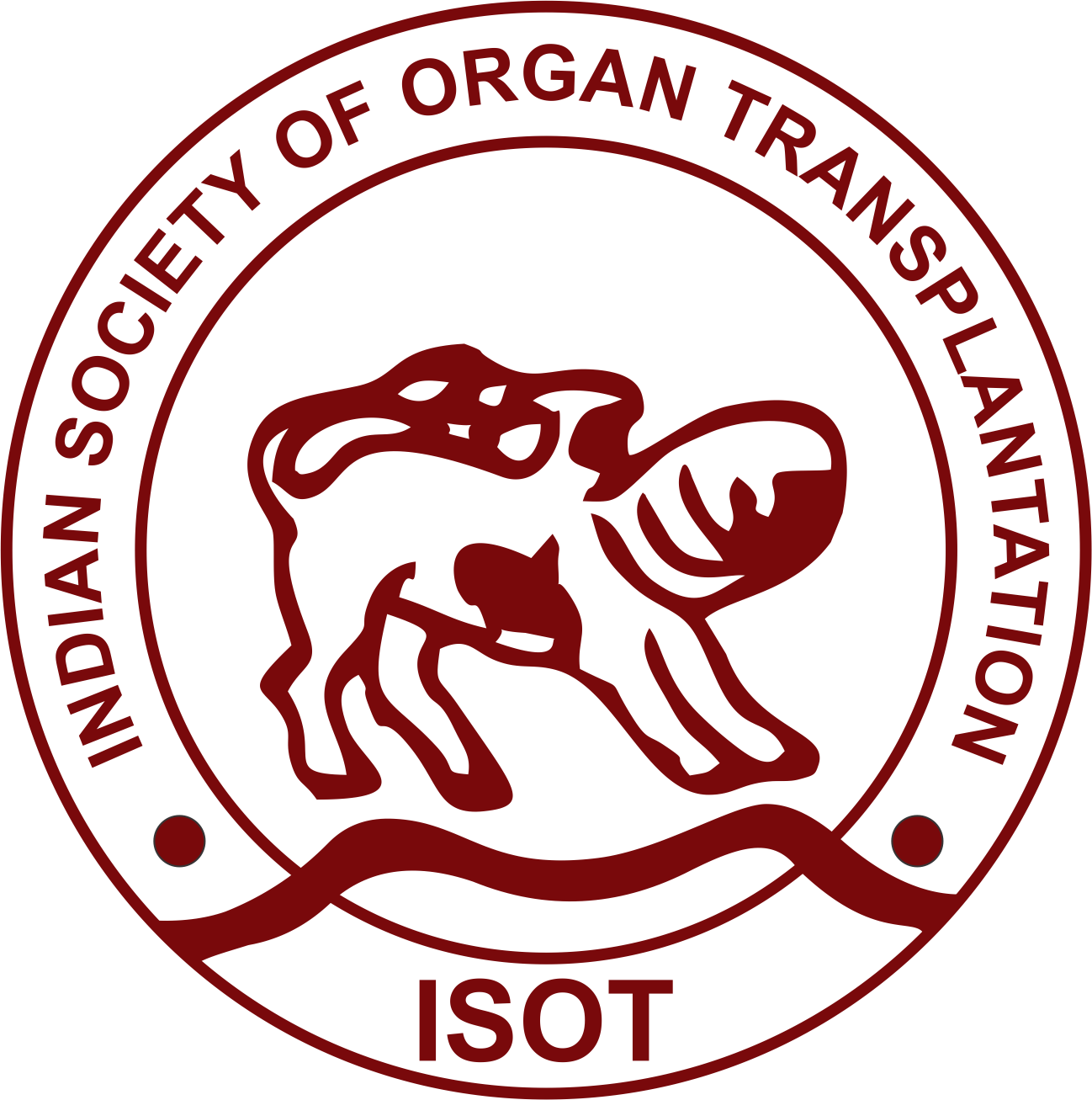
I am delighted to let you know that the Indian Society of Organ Transplantation (ISOT) has become an Affiliated Society of TTS. With over 1400 members and excellent relations with the various levels of the health ministries, ISOT is in an ideal position to make a great contribution to the transplantation field in India. TTS is committed to have unprecedented levels of collaboration with ISOT to provide them with full support in its ongoing development.
Needs Assessment
We recently sent a needs assessment survey and received much valuable input that will help us understand how TTS can better serve you. Unfortunately, very little of this input was received from the younger generation of transplant professionals (less than 10%). It is important that we help develop our next generation of professionals – physicians, surgeons, researchers, and allied health professionals. We therefore encourage the more senior professionals to engage their mentees with TTS so that we learn what their needs are, and tailor our programs to fulfill them.
If you have any comments or suggestions, please send them to me at president@tts.org

An article titled "Statement from an International Collaborative for Expanding Controlled Donation after the Circulatory Determination of Death” was recently published in the Journal Intensive Care Medicine after being drafted by virtual discussions of a multidisciplinary panel of international experts from different areas, convened and supported by The Transplantation Society.
The Statement was developed with the intention of expanding the practice of controlled donation after death determined by circulatory criteria (cDCDD) throughout the world. cDCDD refers to donation from persons who die following the decision to withdraw life-sustaining therapies (WLST) that are no longer deemed beneficial to the patients. Although many hospitalized patients die under such circumstances every day, cDCDD programs have been developed only in seventeen countries according to the Global Observatory on Donation and Transplantation.
Acknowledging the ethical and legal issues that preclude the expansion of this type of donation, the authors have addressed three fundamental elements of the cDCDD pathway. First, the process that leads to the decision of WLST, a decision that should be prior to and independent of any consideration of organ donation. Second, the Statement elaborates a fundamental yet novel concept that the determination of death should be based on the permanent cessation of circulation to the brain. Death may be declared after an elapsed observation period of 5 minutes without circulation, which confirms that the absence of circulation to the brain is permanent.
Finally, the authors highlight the value of perfusion repair through in situ and ex situ strategies to improve the availability of organs and the results of cDCDD donor organs. DCDD protocols may utilize either type of perfusion consistent with the practice of each country. Methods to accomplish the in situ normothermic reperfusion of organs must preclude the restoration of brain perfusion to not invalidate the determination of death.
This Statement is targeted to policy makers, health authorities and health professionals (from the intensive care and the transplant community) to increase the availability of organs for transplantation from cDCDD donors and to give more patients the opportunity of donating organs if consistent with their principles and values.
This close collaboration between The Transplantation Society, the Sociedad Argentina de Trasplante (SAT) and the Sociedad de Trasplantes de Latino América y el Caribe (STALyC) will be an excellent opportunity to gather again safely as friends and colleagues within the global transplant community, in a stimulating environment. The theme of our 2022 Congress is “Committed to Access and Transparency in Transplantation” under which we intend to tackle important issues relating to equality across racial, gender, ethnic, and income groups.
Building on the success of previous TTS Congresses, the program will offer an innovative and comprehensive overview of the latest research and clinical developments across a wide range of topics.
Our scientific program committee will be crafting a variety of educational sessions in several impactful formats that reflect the way our members want to learn, whatever their practice setting and level of expertise. Whether seasoned surgeons or young investigators, Congress attendees will find our global expert speakers addressing the pressing subjects that really matter.
And because such an important part of scientific gatherings is the human factor, multiple times and informal spaces will be incorporated within which to engage with colleagues, make lasting professional connections, and dialogue with our Industry partners.
With the roll-out of global vaccination, we have every expectation that TTS 2022 will proceed as an in-person meeting to support the essential interactions needed to bring the international transplantation community together.
Our host city, Buenos Aires, has been variously described as the Paris of the Southern hemisphere, an elegant and enigmatic city, a teeming metropolis of football, tango, and passion. Visitors invariably agree that it is one of the world’s most exciting capitals.
Passionate and cosmopolitan, Buenos Aires combines a rich architectural and cultural heritage, modern creative energy, electric nightlife, unique traditions, a vibrant arts scene, hectares of green space, warm, friendly hosts and spectacular cuisine.
With its innovative architectural design and state of the art facilities, the new Buenos Aires Convention Centre (CEC) offers the perfect setting to stage the Congress. Located in the Recoleta, a chic and centralized neighborhood, the CEC offers attendees easy access to popular attractions in Argentina’s capital city.
All our committee members are actively working to make TTS 2022 a unique, personalized experience and an opportunity to reconnect face-to-face.

Get ready for the new TTS Masterclass Series!
We are excited to announce a new TTS educational event to be launched in 2021: the TTS Masterclass Series. The challenge of advancing knowledge when restrictions on in-person meetings continue has motivated us to develop a new event format designed to meet the unique characteristics of digital education and the needs of our global members.
Why the TTS Masterclasses?
- To meet the different medical education needs and priorities of TTS members around the globe
- To focus on the real, pressing topics identified by transplant community experts, with specific attention to the diverse regional needs in: Africa, Asia, the Middle East, Europe, Oceania, Latin America and North America
- To leverage the benefits of online learning and condense the content into impactful, interactive formats featuring shorter, sharply-structured talks
- To boost opportunities for personalised learning based on individual interests and knowledge gaps
What to expect?
- At total of 35 Masterclasses, spread over 5 main thematic series:
◼ Transplant Immunology Series
◼ Infection Series
◼ Organ Donation Series
◼ Immunosuppression Series
◼ Outcome Reporting Series - 7 Masterclasses under each Series, targeting the identified needs of specific regions
- Each 90-minute live Masterclass includes presentations by an international and a regional expert to bring perspective to the topic, highlight differences and opportunities, and bolster active discussions
- Interactive features include live chats, polling and Q&A
- Scheduled at a time convenient for each region to facilitate attendance
Stay tuned for further announcements coming soon on the TTS website and other communication channels!

Anesthesia and Critical Care
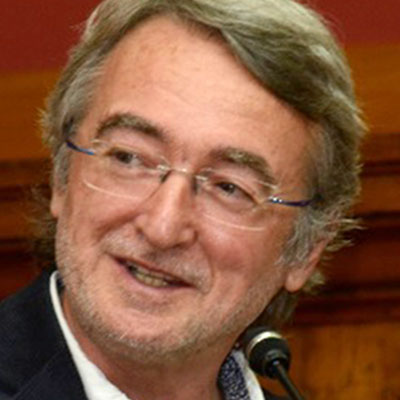
Chair: Martí Manyalich, Spain
- Fayez Ebrahim Alshamsi, UAE
- Rafael Badenes, Spain
- Stephen Beed, Canada
- Anabel Blasi, Spain
- Marian Irazabal, Spain
- John Klinck, United Kingdom
- Meduardo Miñambres, Spain
- Marco Sacchi, Italy
- Boon-Hun Yong, Hong Kong
Early Career Members
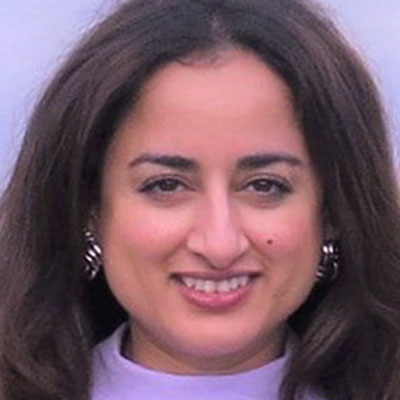
Chair: Shafali Sandal, Canada
- Fayez Ebrahim Alshamsi, UAE
- Ala Ali, Iraq
- Subho Banerjee, India
- Hillary Braun, United States
- Victorio Cervera, Uruguay
- Aravind Cherukuri, United States
- Michael Gagnon, Canada
- Eric Hoi Kit Au, Australia
- Jennifer Li, Australia
- Kam Man Ma / Maggie Ma, Hong Kong
- Margaux Mustian , United States
- Kenji Okumura, United States
- Mettu Reddy, India
- Deirdre Sawinski, United States
- Ismail Sert, Turkey
- Vikas Sridhar, Canada
- Jacqueline Garonzik Wang, United States
Education
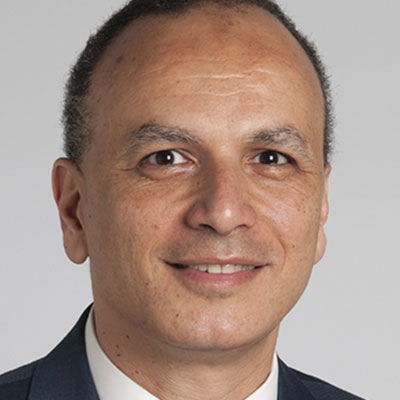
Chair: Medhat Askar, United States
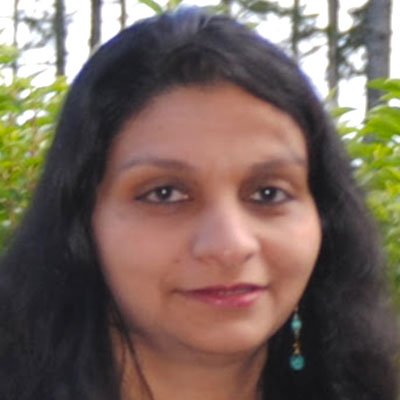
Co-Chair: Nithya Krishnan, United Kingdom
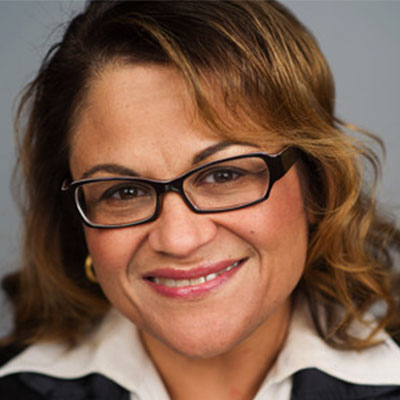
Co-Chair: Milagros Samaniego-Picota, USA
- Curie Ahn, Korea
- Enver Akalin, United States
- Hatem Amer, United States
- Manuel Rodriguez Davalos, United States
- Ashraf Dada, Saudi Arabia
- Carlos Diaz, Argentina
- Karen Dwyer, Australia
- Maria Kaisar, United Kingdom
- Camille N. Kotton, United States
- Annmarie Liapakis, United States
- Jayme Locke, United States
- Valeria Mas, United States
- Katsunori Miyake, United States
- Marlies Reinders, The Netherlands
- Maria Cristina Ribeiro de Castro, Brazil
- Manisha Sahay, India
- Pablo Uva, Argentina
Ethics

Chair: Medhat Askar, United States
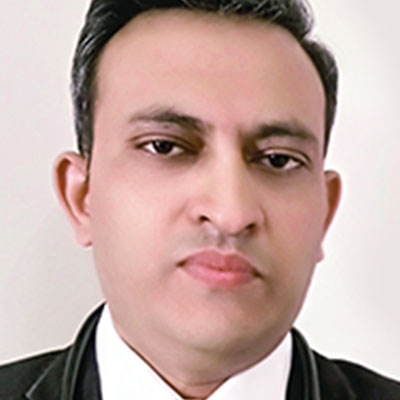
Co-Chair: Vivek Kute, India
- Richard Allen, Australia
- Kristof Van Assche, Belgium
- Patrizia Burra, Italy
- Ian Dittmer, New Zealand
- Beatriz Domínguez-Gil, Spain
- Riadh Fadhil, Qatar
- Michael Freeman, United States
- Rudolph Garcia Gallont, Guatemala
- Elmi Muller, South Africa
- Alejandro Niño-Murcia, Colombia
- Elizabeth A. Pomfret, United States
- Adibul Rizvi, Pakistan
- Ifeoma Ulasi, Nigeria
- Anji Wall, United States
- Haibo Wang, China
Heart and Lung
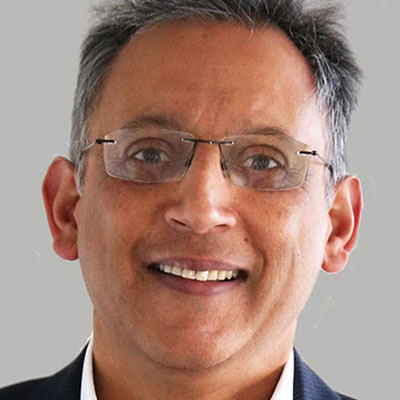
Chair: Kumud Dhital, India

Chair: Peter MacDonald, Australia
Global Data Harmonization
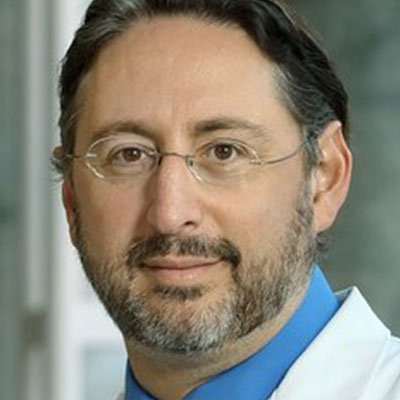
Chair: Dorry Segev, United States
- Curie Ahn, Korea
- Liliana Bisignano, Argentina
- Chris Callaghan, United States
- Beatriz Dominguez-Gil, Spain
- Hiroto Egawa, Japan
- Gustavo Ferreira, Brazil
- Joseph Kim, Canada
- Vivek Kute, India
- Alexandre Loupy, France
- Allan Massie, United States
- Axel Rahmel, Germany
- Jon Snyder, Canada
- Haibo Wang, China
- Germaine Wong, Australia
Membership

Co-chair: Jongwon Ha, Korea

Co-chair: Ron Shapiro, United States
- Gabriel Gondolesi, Argentina
- Nadey Hakim, UK
- Kenneth Woodside, United States
Transplant Science
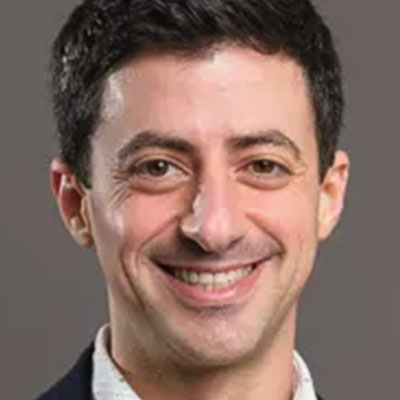
Chair: Fadi Issa, United Kingdom
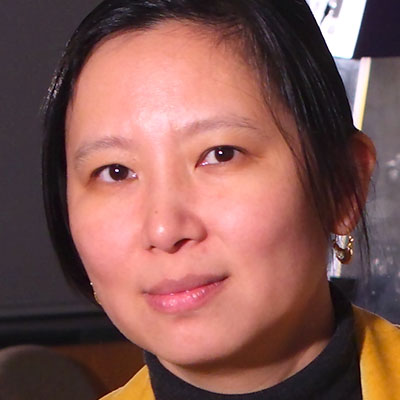
Co-chair: Xunrong Luo, USA
- Carole Guillonneau, France
- Ling Lu, China
- Jonathan Maltzman, USA
- Mara Medeiros, Mexico
- Natasha Rogers, Australia
- Minnie Sarwal, USA
- Birgit Sawitzki, Germany
- Thomas Wekerle, Austria
Women in Transpantation Steering
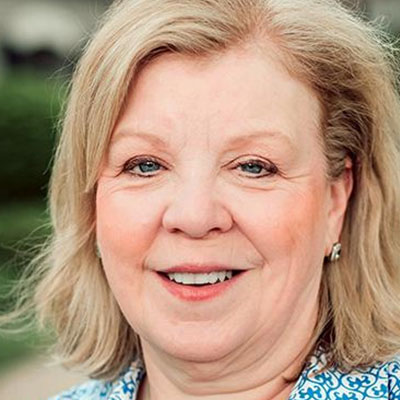
Chair: Roslyn Mannon, United States

Co-chair: Bethany Foster, Canada
- Lori West, Canada (Past-Chair)
- Christine Falk, Germany
- Curie Ahn, Korea
- Eyman Thabet, UAE
- Lalitha Raghuram, India
- Lígia Pierotti, Brazil
- Megan Sykes, United States
- Kathryn J. Wood, United Kingdom (Founder)

The A&CC is organized around the following key areas of interest: anaesthetic care in pre-, intra- and post-operative settings including the organ-related early phase of transplanted patients within the critical care units; ECMO (extra corporeal membrane oxygenation) for life support in emergency CPR and mobile assistance, NRP (normothermic regional perfusion) to maximise organ procurement, quality management and research & new developing in the field.
Our mission is to embrace best practices currently available and to provide knowledge based on a scientific approach for all topics, including:
- Specific pre- and intra-operative support of donors & recipients.
- Transplant candidates assessment and optimization focusing on a multidisciplinary approach.
- Early detection and prevention of postoperative complications.
- Early recovery and rehabilitation of recipients.
- Early detection and referral in organ donation (out-off of hospital and in-hospital settings).
- Indications and outcomes related to extracorporeal life support in patients who suffered cardiac arrest and its role increasing the pool of donors suitable for a DCD type 2 programs.
- End of life care and brain death/death by neurological criteria standardization practices.
- Proactive donor management within the Critical Care Units.
- State of art regarding organ recovery procedures in Donation after Circulatory Death (DCD) using NRP.
- The promotion of a multidisciplinary network of healthcare professionals for research and educational purposes.
- The implementation of new technologies to support the clinical decision-making boosting the digital transition in organ donation & transplantation.
As we continue working together, our plan is to engage a larger community of experts (anesthesiologists, intensivists, emergency physicians, transplant procurement managers, perfusionists, cardiologists, pneumologists, hepatologists, nephrologists, gastroenterologists, endocrinologists, physiotherapists and psychologists) all involved in solid organ transplant management, to consolidate the A&CC Committee and encourage an active participation in all future initiatives and events.
The entire team would like to express thanks for the opportunity to participate in this Committee. If you are interested in becoming a member of the Anesthesia and Critical Care Committee or supporting us, please contact us at committees@tts.org.
Connecting Dots
Connecting D.O.T.S. is an online platform dedicated to educating schoolchildren on donation and organ transplantation. It provides information for teachers, students and their families. As organ transplantation is a very important topic for the treatment of end-stage organ disease, it is important to raise awareness amongst the general public.
DonorFacts is the student section of the website. The three modules in DonorFacts were shaped after the Dutch program, DonorWise. Much of the modules were translated directly from DonorWise from Dutch into English. DonorWise was created by The Dutch Transplantation Foundation with support of the Dutch Society of Transplantation. We would like to thank the foundation for allowing us to model DonorFacts after their successful program. A special note of appreciation is given to Professor Marion Siebelink from Universitair Medisch Centrum Groningen, Netherlands, whose invaluable assistance and commitments in school education helped us in completing this project.
The modules include interactive sessions and videos, and provide general education to broaden awareness on organ donation and transplantation. We hope that students will share their knowledge with family and friends discussing about what they learned. The ultimate goal is to facilitate an open line of communication about topics related to organ donation (mainly from deceased donors) that will increase access to transplantation worldwide.
We thank the Canadian Society of Transplantation that supported this initiative from the beginning. Additionally, we acknowledge some of the pioneers in organ donation and transplantation for schools, such as William Wall from London, Ontario, Canada, and Professor Felix Cantarovich from Argentina. Professor Cantarovich was the inspiration for this program. He has spearheaded the topic of school education for many decades.
Click to view the Connecting D.O.T.S. website
COVID-19 “Hot Off The Press"
Each week Education Committee Members lead by Enver Akalin review all the new publications on COVID-19 and present the most relevant newly released publications to the TTS membership. Be sure to review the “Hot Off The Press” section in the next TTS Pulse.
Future Plans
We are excited to bring in new members to the committee as well as welcome back some past members. The committee has been broken down into working groups who are working together to progress new projects in addition to enhancing past projects. Stay tuned for new online educational content.

This year, we have launched a new committee call the Global Data Harmonization Committee. The Committee is made up of leaders in the global transplantation community whose goal is to provide guidance to the TTS Executive Committee and Council on matters related to availability of transplant data across the world and possibilities of designing and implementing data harmonization efforts. The Committee is in its infancy and is excited about the possibilities ahead.

First, on behalf of the Committee Chair, Fadi Issa and Co-Chair, Xunrong Luo, we would like to welcome our new TTS TSC members: Ling Lu, China (2021-2024), Mara Medeiros, Mexico (2021-2024), Natasha Rogers, Australia (2021-2024) and Carole Guillonneau, France (2021-2024). Together with existing members Jonathan Maltzman, USA (2017-2022), Minnie Sarwal, USA (2017-2022), Birgit Sawitzki, Germany (2017-2022) and Thomas Wekerle, Austria (2017-2022).
The Committee has convened its first meeting on March 9, 2021, and has made short-term and long-term plans for continuing to promote basic science research in transplantation in the upcoming years.
There are several updates on meeting organizations by TTS TSC:
- Given the COVID-19 pandemic and restrictions to travel still in effect for 2021, TTS-AST-ESOT have jointly made the difficult decision to cancel the International Transplantation Science Meeting (ITS) in 2021, and hopefully to resume the meeting in 2022 to be organized by ESOT in Europe.
- TTS TSC and AST are co-organizing a transplantation-focused session in the 2021 FOCIS virtual meeting (June 8-11). This exciting symposium will explore the new era of spatial genomics and its implications in transplantation.
In addition, we are planning for the TTS Mentee-Mentor Awards for the TTS 2022 Congress in Buenos Aires, Argentina (September 10-14, 2022). In the next few months, we will be contacting National Societies for their interest in supporting the International Transplantation Science Mentee-Mentor Awards. If your Society is interested in supporting an award(s) for the TTS 2022 Congress in Buenos Aires, Argentina, please communicate with program@tts.org.

Transplantation and Transplantation Direct have had a substantial increase in the number of papers submitted to them in the past year, requiring an adjustment to how the journals’ peer review works. We have a team of around 120 editors and 3000 reviewers working to review all these papers quickly and effectively. Unfortunately, in addition to having more work to do, the team have space for only a limited number of papers each month in the Transplantation Journal and so only about 10% of papers can be accepted. If you have been a bit surprised or disappointed by a rejection recently – that is why.
Transplantation has had more than 250 submissions on various aspects of COVID in donation and transplantation practice and we published a special issue in January 2021 to provide a summary of the information we have at the one-year point in the pandemic. We have also published the first information on the side effects (no surprises) of mRNA vaccines in transplant patients. For the latest information sign up to the online first notifications email or RSS feed - Online First: Transplantation (lww.com) and see the top right hand side of the page Online First Alerts. Papers appear here a maximum of ten days after they have been accepted, so this is where you will get the latest information.
We created Transplantation Direct six years ago to help the field to publish papers that can’t fit into Transplantation, but are worthy of publication. These papers are selected carefully to meet the criteria for this open access journal, aiming for high-quality original basic or clinical science and preliminary reports on high impact experimental or clinical findings, including new methodologies and technical papers; we also publish articles from TTS-affiliated societies and registry reports. Highly selected commentaries and case study reports that carry important messages are considered as well. The journal is growing rapidly in the number and quality of papers and is being accessed by an increasing number of readers. Transplantation Direct is indexed on PubMed Central, DOAJ, and Google Scholar, as well as being abstracted and indexed on: Academic Pub, British Library, CAL, CCC, CEDRO, CNKI, EBSCO, Elsevier Health Sciences, Ex Libris Ltd, HINARi, Infotrieve, ProQuest, ReprintsDesk, SageKnowledge, SIPX, SWETS, and TDNet.

In the extraordinary times that we are passing through and the impact of COVID-19 on global transplant activity, the DOI becomes even more relevant. COVID-19 has proven to be a tumultuous experience for everyone across the globe. We hope that once the "curtain" has lifted, we will not discover significant unethical transplant activities being conducted "behind the scenes.”
Our community remains strong throughout the turmoil. We look to our endorsing organizations and the global transplantation community to continue promoting ethical transplant practices world-wide. Please visit www.declarationofistanbul.org/newsletter to view the most recent issue of the newsletter.
Newsletter
The DICG is excited to be putting out regular newsletters. The Newsletter is brought to you on behalf of the Executive Council of the Declaration of Istanbul Custodian Group (www.declarationofistanbul.org) which works to protect and promote the principles enunciated in the Declaration of Istanbul (DOI), a landmark document in the history of global transplantation.
Education Modules
The DICG has put together an online course that was designed to allow participants to learn at their own pace and time during each module of the course. The course is open to all participants who want to learn about the DOI and the DICG
The course will guide participants through all the important aspects of the declaration. At the conclusion of the course, each participant will receive a certificate acknowledging their completing of the course.
Modules:
- History of the DOI
- 2018 Edition of the DOI
- Ethical Issues related to the DOI
- Regional Updates
The course was launched in April 2021.

Our 11th year of the Women in Transplantation initiative of The Transplantation Society has gotten off to a busy start, with our new leadership of Chair Roslyn Mannon (USA), Co-Chair Bethany Foster (Canada); Pillar Chairs, Anita Chong (USA) and Germaine Wong (Australia): and Past Chair, Lori West (Canada).
Since our last update, we have co-hosted a number of networking events. At the American Society of Histocompatibility and Immunogenetics (ASHI) meeting in October 2020, our session featured the incoming president of the International Society of Heart and Lung Transplantation (ISHLT), Dr. Lara Danziger-Isakov. Dr. Isakov reflected on the events of COVID-19, not only in terms of impacts on clinical care, but also on careers and family life. Over 350 were in attendance and an encore presentation was hosted by the Canadian Donation and Transplantation Research Program (CDTRP) in December 2020. We also partnered with the Federation of Clinical Immunology Societies (FOCIS) for a wonderful presentation by Dr. Yvonne Maldanado, Senior Associate Dean for Academic Diversity and Inclusion at Stanford University. We have already confirmed that WIT will cohost a scientific session in 2021, in collaboration with the American Society of Transplantation Women’s Health community of practice and FOCIS. A networking event at FOCIS is also in the pipeline.
With the guidance of Dr. Curie Ahn and Dr. Germaine Wong, WIT co-hosted its first clinical science webinars with the Asian Society of Transplantation in January and February 2021. Reflecting on the topic of “Gender Disparity in Kidney Transplantation in Asia” were WIT unsung heroes Drs. Lkhaakhuu Od-Erdene (Mongolia), Vasanthi Ramesh (India) and Rose Marie O. Rosete-Liquete (Philippines). They were joined by other women leaders (and some men as well) in Malaysia, South Korea, Indonesia, Myanmar, Singapore, Pakistan, Bangladesh, and Hong Kong. Most striking was the diversity of access dependent on economic and social factors intrinsic to individual countries. Further work is needed to support women’s access to transplant in some countries and further identify support structures for the many women donors. We also hosted a Networking meeting recently with the Transplantation Society of Australia and New Zealand (TSANZ), another first for WIT. Hosted by Dr. Germaine Wong, it featured Dr. Lori West, with Professor Patria Hume speaking on “Overcoming Adversity to successfully contribute to society as Professor of Human Performance”.
Another new achievement is the Women in Transplant Fellowship Grant program. This program will provide support to two fellows for research in sex and gender issues in transplantation for a 2-year period. This grant program would not be possible without Industry support from One Lambda Thermo Fisher and Sanofi. The competition is underway and we will update the results in the Tribune. In the meantime, we look forward to the long-term success of this program providing new research opportunities for our transplant trainees.
Women in Transplantation is thrilled to partner with the celebrated movie “Picture a Scientist”. Launched on International Women’s’ Day (Monday March 8th), discussion groups have been set up (both online and in person, where possible) with the aim of providing an educational and mentoring focus, as well as sharing experience. The first of these groups kicked off the series this week. It is anticipated that there will be numerous viewings of the movie and subsequent discussion groups over the course of 2021.
WIT will be partnering with the TTS Education Committee on a series of webinars around living donors and inequity. More information will follow in upcoming WIT and TTS communications.
We have several upcoming events and hope you will join us, no matter what time zone.
If you are interested in becoming a member, being put onto our WIT mailing list, attending a WIT event, setting up a group viewing of ‘Picture a Scientist’ at your institution, or simply hearing more about who we are and what we do, please contact Katie Tait, our representative at TTS katie.tait@tts.org or visit www.tts-wit.org
Upcoming WIT Events within Congresses
| June 5-9 | American Transplant Congress Featured programming and virtual networking collaboration of WIT and AST WHCOP hosted by: Roslyn Mannon and Deirdre Sawinski featuring Dr. Elmi Muller. |
| June 8-11 | Featured symposium at the FOCIS virtual meeting and networking |
| July 25-28 | Congress of the Asian Society of Transplantation featured symposium and networking |
| Aug 29-Sept | ESOT proposed pre-congress webinar, features symposium and networking event |

Just as we were getting started preparing an exciting program for our joint congress with IXA and IPITA in San Diego, we were hit by the second wave of COVID-19 and our face-to-face meeting had to be postponed. We were all looking forward to assembling to hear top researchers presenting state-of-the arts, new and exciting data and networking to find possible collaborators. Instead, we are doing the next best thing, hosting a virtual meeting together with IXA on September 23-25, 2021. We hope to meet again in person in 2023. Please visit the 2021 CTRMS/IXA Congress website at www.ixa-ctrms2021.org for more details.
For this meeting, we are minimizing the parallel sessions so that we can enable interactions and multidisciplinary discussions. We are planning to offer a heavily subsidized rate for students as it is very important for our society to recruit and include students and young investigators in our field. CTRMS offers ample opportunity for members to get involved and join a committee, organize webinars, workshops and interactive platforms. As an active member of CTRMS you can also suggest topics of particular interest that you would like featured in our official journal Organogenesis.
Ewa Ellis
President, CTRMS

As accelerated vaccinations and the approach of Spring bring new hope for a return toward normalcy, I am excited to report that IPITA is poised for another highly successful year. As you are likely already aware, for obvious reasons, the Association abandoned planning for a Tripartite in person meeting with IXA and CTRMS in San Diego for next fall; fortunately, this has been rescheduled to 2023. However, planning is now underway for an IPITA standalone virtual meeting October 21-23, 2021. A talented Scientific Planning Committee, headed by Jon Odorico, is building a program of premier speakers to integrate the best of pancreas, islets, stem cells and regenerative medicine with the goal of interactive sessions and opportunity for networking. Please visit our website in the coming weeks for updates www.tts.org/ipita
Newsletter
The DICG is excited to be putting out regular newsletters. The Newsletter is brought to you on behalf of the Executive Council of the Declaration of Istanbul Custodian Group (www.declarationofistanbul.org) which works to protect and promote the principles enunciated in the Declaration of Istanbul (DOI), a landmark document in the history of global transplantation.
I want to allot the remainder of our Tribune space in this issue to one of our star council members who provides an update on an exciting new initiative that will strengthen our association and add value to IPITA membership:
“Through the collaborative efforts of IPITA’s Membership and Educational Committees, we have undertaken an ambitious initiative to create a comprehensive online Educational Curriculum that encompasses the spectrum of subjects in Islet and Pancreas Transplantation, a review of the history of our field, and a tantalizing look into the future. Almost 60 topics of interest have been selected by a diverse and expert Scientific Advisory Committee (SAC). Clinical and scientific pioneers and international experts spanning the globe have been invited to speak; recordings of the Introductory Section are already underway. 30-minute videos will be released at regular intervals via the IPITA website and will be available free for Trainees, Associate and Full members of IPITA and TTS who are current with 2021 dues.
This project is one of many the Association is undertaking not only to demonstrate and celebrate our legacy and the advances in our field, but also, to introduce and educate a new generation into the exciting and rewarding world of beta-cell replacement. It is both our interest and expectation that this curriculum become the authoritative source for medical and surgical training programs around the world. The SAC will ensure the most up-to-date and relevant material available as ongoing care of the site will demand regular video updates.” — Matt Cooper.
I look forward to connecting with everyone in the Fall.
James F. Markmann, MD, PhD
President, IPITA

As with many other organisations, IPTA has also adapted to the new COVID-19 way of doing things. The most significant change has been moving our IPTA Prague 2021 meeting to March 26-29th 2022, as we still hope to have an in-person meeting. We watch the roll-out of the vaccine with excited interest in this regard.
Our IDCARE Committee kept their eye on COVID-19 in pediatric transplants and provided a resource dashboard for providers on our IPTA website. They also collaborated on publications in Pediatric Transplantation on SARS-CoV-2 infections and Vaccines (in progress), as well as summary manuscripts on the PTLD Consensus conference - all this in addition to other initiatives that they are enthusiastically planning.
Our committees have been very busy and our big focus for the next year is that of expanding our reach and impact by Educational Initiatives. As such we would like to introduce the Education Committee’s SMARTER INITIATIVE - Social MediA for inteRnaTional pEdiatric tRansplantation. The format for this will be varied and will include Webinars, Podcasts, Clinical Vignettes and Virtual Journal Clubs on a monthly basis. We were excited about our 2020 webinars and wish to expand this initiative further.
Our Allied Health and Nursing Professionals committee was particularly active with 2 webinars. They are currently analyzing their survey on Professional Practice.
Our Communications Committee has been updating our website as well as developing our social media footprint. We encourage you to follow us on Twitter on @IPTAPedsTx as well as our IPTA journal Pediatric Transplantation on @pedstransjrnl if you have not already done so! We have also appointed a social media staff member to assist us in this.
It is always challenging to encourage membership in a non-congress year, and our Membership committee have been highlighting the benefits of being an IPTA member.
Our Publications committee is developing a writing project initiative as well as a peer mentoring program to assist junior faculty in developing manuscripts.
Our Ethics committee have provided ethic topics for our newsletter and are in the process of developing a position statement for organ transplantation.
The IPTA Outreach committee is developing a new program with Ibadan, Nigeria and Calgary, Canada with the use of Zoom educational meetings, and also recently hosted a very interesting virtual facility tour of the Ibadan centre.
We have embarked on a Strategic Planning Initiative (2020–2023) which is going well with 5 main themes: Guideline Development, Building Connections and Expanding Membership, Strengthening Congress, International Advocacy, and Education.
So, all in all a busy time for IPTA with many web-based initiatives – I feel so privileged to be working with this great group of advocates for pediatric transplantation.
We also continue to plan for the IPTA Prague 2022 and hope to see you all there!
Best wishes and stay safe,
Mignon McCulloch
President, IPTA

Although most of us will miss out on a visit to the beautiful city of Auckland this year, the team led by Helen Evans and Amin Roberts has organized a wonderful program with over 30 invited international speakers. 181 abstracts were submitted for the meeting and review of these has been completed with notifications to authors in the very near future. The presentations will be timed in either the early morning or evening in New Zealand to be accessible to most members around the globe. I encourage all IRTA members and any of your colleagues interested in intestinal rehabilitation and transplantation to register for this virtual meeting to not only update your knowledge but also to interact with colleagues from around the world. Please visit the meeting website at Cirta2021.co.nz to view the program details and to register. One excellent feature allows you to click on the time of the session you are interested in and it will take you to a new page which will give you the exact time of the session in your part of the world.
As you may recall, the international intestine transplant registry moved from Takeda to be housed on the TTS servers and thanks goes to Roberto Colarusso, Director of Technologies at TTS for facilitating the transfer of data. The Intestinal Failure Registry was launched in January with more than 40 worldwide intestinal rehabilitation programs expressing interest in submitting data. The IRTA would like to acknowledge and thank both Takeda Pharmaceuticals U.S.A., Inc. and Stanford Intestinal Rehabilitation & Nutrition Support for their generous financial support of our Registries.
The work of the various IRTA committees continues unabated. The AHP committee are planning more webinars following the great success of their webinar series and joint symposium with PIFRS last year. The newly constituted Membership and Education committee led by Laurens Ceulemans had their first committee meeting this month and we look forward to increased educational offerings from IRTA to the membership.
Thanks to everyone who has worked so hard on association business over this past year and I look forward to seeing everyone, at least virtually, at CIRTA 2021 (June 30th- July 2nd)
Simon Horslen
President, IRTA

The past year has been an incredible challenge for everyone. COVID-19 has affected our daily lives and has resulted in the loss of family, friends, colleagues and patients. Thankfully, the successful development of a range of SARS-CoV-2 vaccines offers the promise of a brighter day where we will not fear severe illness, hospitalization or death from COVID-19. This will open the doors to future meetings and travel, in addition to hopefully bringing life closer to the normal we were used to before 2020.
The TID Section has begun planning a range of educational activities to address COVID-19 and TID in general. We contributed to the Immunocompromised Host Society Meeting (ICHS2021.org) by having a symposium focused on common post-transplant infections. We also hosted a well-received webinar on SARS-CoV-2 vaccine in transplant recipients. For those who missed this great webinar, it is available for viewing online.
We have continued to update our COVID-19 guidance document with a focus on vaccines and therapeutics.
As we look forward, the TID section is putting a renewed focus on education. We have charged Stephanie Pouch, Emory University, Atlanta, Georgia, USA to help focus our educational endeavors. This will include a range of webinars that will cover common post-transplant infections and will be paired with interactive Twitter feeds, including questions and summaries from the talks. The Section is also beginning to plan our 13th International Transplant Infectious Diseases Conference. This will be planned for the fall of 2021 and will be a virtual meeting. More details will follow shortly. We will also host a TID session at the ISHAM Asian Fungal Working Group Meeting, now taking place August 5-7, 2021 (www.ishamasia.com).
This has been a year of change for the Section as well. We are in the process of incorporating the Section which will allow us to be more effective in planning for the future. We will also be holding elections for our next President-Elect, as well as several new council members.
Lastly, we have recently announced the transition in leadership for the Section’s Transplant Infectious Disease journal. This journal was started by Bob Rubin as the home for scholarly work related to the field of TID. Hans Hirsch and Francisco Marty became the second co-editors and have worked hard to grow and elevate its impact factor. Over the years, we have seen a significant increase in number of papers submitted to the journal and are indebted to our reviewers for helping to determine which papers will be published. Michael Ison, the current TID Section President, will become the Editor-In-Chief of the journal in July. While much of what has been built over the years will be maintained, we have several goals and changes that you can expect in the near future:
- Case reports currently represent a major volume of our submissions and publications. The plan is to change this by reducing the number of cases accepted and shortening the cases to brief letters highlighting challenges to diagnosis or treatment.
- A new Clinico-Pathologic Conference will be a new addition to the journal. Groups that have interesting cases will have the ability to submit the case for these conferences. If selected, the authors will present their case to an expert discussant. This case presentation and discussion will be available to all to participate in through a web-based meeting and will then be written up for the Journal.
- We will be more actively engaging papers from the HSCT and oncology ID researchers and encouraging more submissions from pediatric TID groups.
- We will add more invited review papers and editorial commentaries about important publications.
- The journal will be making the leap into Social Media. We will soon launch our official Twitter Handle @TheTxIDjournal. We will utilize this to increase awareness of key papers that are published and hope soon to feature visual abstracts for accepted papers.
As always, we encourage everyone to consider how to engage with the Section. If you have ideas or proposals for things we can be doing, please do not hesitate to reach out (mgison@northwestern.edu).


To consolidate its position as the leading global organization, the Council has representation from all six regions of the world: Asia, Europe, Latin America, Middle East/Africa, North America and Oceania.
EXECUTIVE MEMBERS
| PRESIDENT Marcelo Cantarovich |
| PRESIDENT-ELECT Elmi Muller |
| IMMEDIATE PAST PRESIDENT Mehmet Haberal |
| VICE-PRESIDENT John J. Fung |
| SECRETARY Ron Shapiro |
| SENIOR TREASURER Minnie Sarwal |
| TREASURER Gabriel G. Gondolesi |
| HISTORIAN Randall E. Morris |
| INTERNATIONAL HEADQUARTERS Jean-Pierre Mongeau Executive Director |
COUNCILORS
| ASIA Curie Ahn Vivek Kute |
| EUROPE Nadey Hakim Martí Manyalich Vidal |
| LATIN AMERICA Maria Christina Ribeiro De Castro Carlos Diaz Maria Gerbase De Lima |
| MIDDLE EAST / AFRICA Mustafa Al-Mousawi |
| NORTH AMERICA Camille N. Kotton Dorry Segev Megan Sykes |
| OCEANIA Karen Dwyer |
Contact
Address
The Transplantation Society
International Headquarters
740 Notre-Dame Ouest
Suite 1245
Montréal, QC, H3C 3X6
Canada
Используйте Вавада казино для игры с бонусом — активируйте промокод и начните выигрывать уже сегодня!

